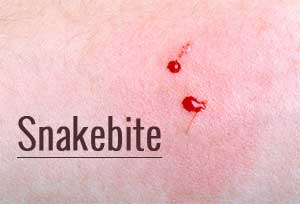- Home
- Medical news & Guidelines
- Anesthesiology
- Cardiology and CTVS
- Critical Care
- Dentistry
- Dermatology
- Diabetes and Endocrinology
- ENT
- Gastroenterology
- Medicine
- Nephrology
- Neurology
- Obstretics-Gynaecology
- Oncology
- Ophthalmology
- Orthopaedics
- Pediatrics-Neonatology
- Psychiatry
- Pulmonology
- Radiology
- Surgery
- Urology
- Laboratory Medicine
- Diet
- Nursing
- Paramedical
- Physiotherapy
- Health news
- Fact Check
- Bone Health Fact Check
- Brain Health Fact Check
- Cancer Related Fact Check
- Child Care Fact Check
- Dental and oral health fact check
- Diabetes and metabolic health fact check
- Diet and Nutrition Fact Check
- Eye and ENT Care Fact Check
- Fitness fact check
- Gut health fact check
- Heart health fact check
- Kidney health fact check
- Medical education fact check
- Men's health fact check
- Respiratory fact check
- Skin and hair care fact check
- Vaccine and Immunization fact check
- Women's health fact check
- AYUSH
- State News
- Andaman and Nicobar Islands
- Andhra Pradesh
- Arunachal Pradesh
- Assam
- Bihar
- Chandigarh
- Chattisgarh
- Dadra and Nagar Haveli
- Daman and Diu
- Delhi
- Goa
- Gujarat
- Haryana
- Himachal Pradesh
- Jammu & Kashmir
- Jharkhand
- Karnataka
- Kerala
- Ladakh
- Lakshadweep
- Madhya Pradesh
- Maharashtra
- Manipur
- Meghalaya
- Mizoram
- Nagaland
- Odisha
- Puducherry
- Punjab
- Rajasthan
- Sikkim
- Tamil Nadu
- Telangana
- Tripura
- Uttar Pradesh
- Uttrakhand
- West Bengal
- Medical Education
- Industry
WHO unveils plan to tackle global snakebite emergency

Geneva: The World Health Organisation on Thursday unveiled a new strategy to dramatically cut deaths and injuries from snakebites, warning a dearth of antivenoms could soon spark a "public health emergency". Each year, nearly three million people are bitten by poisonous snakes, with an estimated 81,000-138,000 deaths.
Another 400,000 survivors suffer permanent disabilities and other after-effects, according to WHO figures.
In a new report, the UN health agency urged the international community to take steps to address the problem, which it warned had long been dangerously underestimated and neglected.
WHO, which two years ago categorised "snakebite envenoming" as a Neglected Tropical Disease, presented a strategy aimed at cutting snakebite-related deaths and disabilities in half by 2030.
Read Also: WHO aims to reduce deaths, disabilities caused by neglected Snakebite envenoming disease by 50 percent
Snake venom can cause paralysis that stops breathing, bleeding disorders that can lead to fatal haemorrhage, irreversible kidney failure and tissue damage that can cause permanent disability and limb loss.
Most snakebite victims live in the world's tropical and poorest regions, and children are worse affected due to their smaller body size.
An important part of the strategy is to significantly boost production of quality antivenoms, WHO said.
Production of life-saving antivenoms has been abandoned by a number of companies since the 1980s, and availability of effective and safe products is disastrously low in Africa especially, with a similar crisis also looming in Asia.
"Without urgent reshaping of the market, greater regulatory control and other measures, a public health emergency is imminent," the WHO report warned.
The UN agency called for "the restoration of a sustainable market for snakebite treatment", insisting on the need for a 25-per cent increase in the number of competent manufacturers by 2030.
WHO said it planned a pilot project to create a global antivenom stockpile.
The strategy also called for integrating snakebite treatment and response into national health plans in affected countries, including better training of health personnel and educating communities.
The Doctors Without Borders charity praised the strategy, saying it "could be a turning point" in tackling snakebite poisoning, which it said "kills more people than any other disease on WHO's Neglected Tropical Diseases list."
"The toll that snakebite envenoming takes on people around the world truly represents a hidden epidemic," MSF Tropical Medicine Advisor Gabriel Alcoba said in a statement.
Medical Dialogues Bureau consists of a team of passionate medical/scientific writers, led by doctors and healthcare researchers. Our team efforts to bring you updated and timely news about the important happenings of the medical and healthcare sector. Our editorial team can be reached at editorial@medicaldialogues.in.
Next Story


